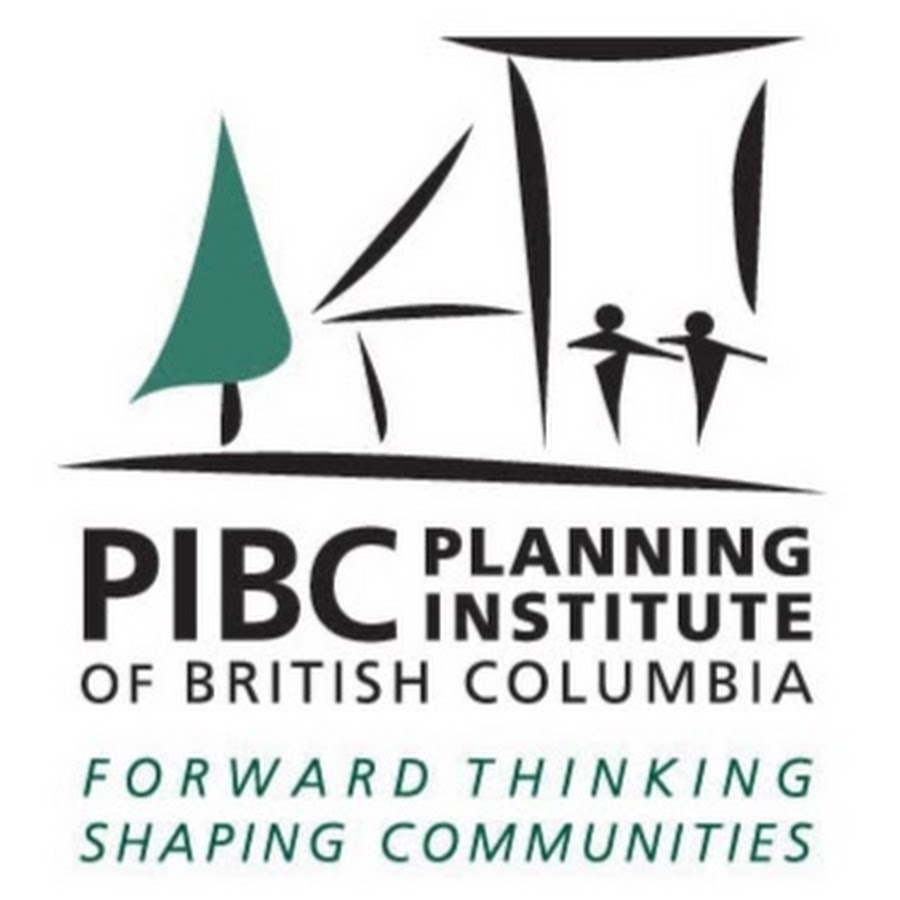Scroll down for current highlights on the range of work and interests of featured faculty and students at UNBC School of Planning and Sustainability. For more information about UNBC, its planning program, students & faculty, visit www.unbc.ca/school-planning-and-sustainability.
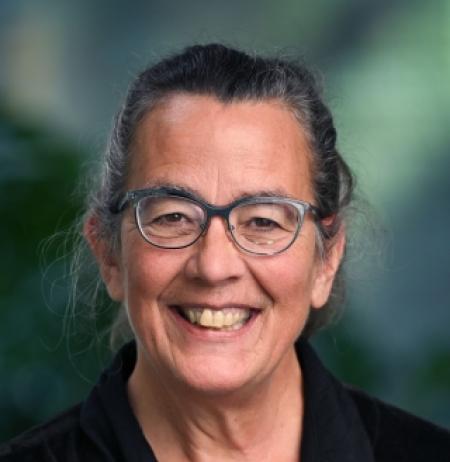
What makes you passionate about planning?
What makes me passionate about planning is the opportunity to bring about change in the world. I get excited about hammering out a project or plan that speaks to different constituencies and interests, about ‘doing democracy’ through practical projects that have the potential to make people’s lives better. For me it is not just the outcomes, although those are important: enabling more equity, more efficiency and lower environmental impact. I am passionate about the process of ‘practical democracy.’ Of course there is also nothing quite like the feeling that someone now has a place to live, and you’ve been some part of bringing that about.
Tell us about a project you are working on and why it excites you.
Big picture, I am working on community resilience – to climate change and to other structural and systemic changes. Within that, I am interested in the decision-making frames of provincial resources and local communities. I am currently working on ‘a project’ – actually two projects – that seek to improve the resilience of communities to flooding.
There have been relatively recent scientific advances that could strengthen our understanding of the linkage between forest practices and community flooding. Along with changes in climate and the intensification of wildfire impacts, in some watersheds, forest practices can increase the frequency and severity of flooding in communities.
Planners have long been susceptible to the assumption that better information makes for better decisions. In my view, that is only a potential. Better information, in better regulatory contexts, can be used to make better decisions if the information is accepted, and there are practical options. With forestry practices, downstream impacts on communities are as yet poorly understood. In many communities, it is difficult to either influence the upstream decisions, or manage the impacts.
I am excited by the potential to contribute to improving the acceptability and usefulness of how we understand flood risk, and potentially how actors and decision-makers that are changing resource lands understand their impacts and liabilities.
This is a project where there are many interests and constituencies, several separate regulatory contexts, and many decision-makers, from upstream resource managers to communities to landowners and insurance companies.
What do you think the most important challenge will be for planners in the future?
On the one hand, the impacts of climate change will challenge all of us in ways that we are already experiencing. At the same time as we have the climate challenge, we are more challenged than ever to create spaces for dialogue and for the practical democracy that relies on this. We are in a time of great divisiveness, and of global anti-democratic manipulation. Our communities – and the web of social norms that are required for democracy – are at risk from actual bad actors as well as the casual bad actors that create click-bait.
I would say that the greatest challenge of all is to democratic process, as it is through that that planners are able to do the practical work that enables our commitments to place and equity.
Planners set the table for communities to consider change. It is difficult enough to invite consideration of the tremendous changes we should expect. How does one bring people to the table in a tourist town when tourism is not viable because of the probability of wildfire impacts? The peddlers of distrust make this ‘table-setting’ both difficult and dangerous.
What are you most excited about at your planning school?
I am most excited about the planning culture that we build with each other – our students and our faculty are committed to this thing that I call ‘practical democracy.’ I believe that our students leave our School well-prepared to do what is necessary to create collaboration and positive change. There is nothing more exciting in a School than to be co-creating a planning discipline that is attentive to equity and diversity, and to outcomes, and to see our students doing positive work in their communities.
Please tell us about a place or plan that has been influential to you.
I love the mosaic of many plans, I almost never like ‘one plan.’ I think I have learned from all the places that I have lived. I believe that our communities shape our choices – and it is perhaps from living in many places that I have come to see that so clearly.
I have lived in Bragg Creek and Calgary in Alberta, Winnipeg, Nelson BC, Seattle, Los Angeles, Louisville Kentucky, a few months living in Rome Italy (not Rome Ohio), Ames Iowa, Greater Metropolitan Kaslo BC, and most recently in Prince George.
This diversity has influenced how I understand what choices can be created with density, the possibility of change over time, the value of networks of connectivity, the particularity of race, the beauty of delightful transit, and the harms that can be done by singular ideas and singular rationalities.
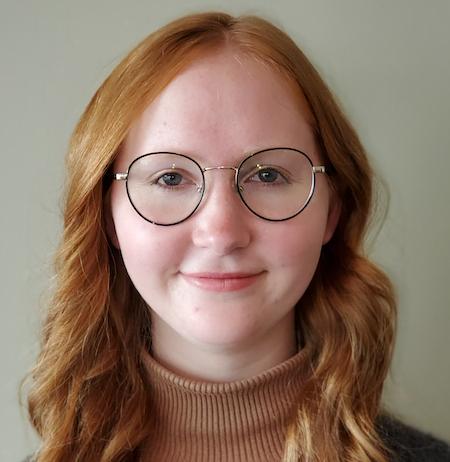
What makes you passionate about planning?
Planning is a profession that creates change. A family friend, who is a Registered Professional Planner, sat me down before I started my first year and shared some of his experiences as a planner and the reasons he loved this profession: it makes a difference, and it creates visible change. I have always been passionate about the communities I have been fortunate to call home – Northern Vancouver Island, Nanaimo, and now Prince George. These are diverse, resilient places that each have a rich history. I am passionate about planning because I want to stay connected to these communities and others like them to ensure that future generations have safe, supportive places to grow up. Our biggest responsibility in life is to make the world a better place for those in it and those yet to come.
My first year of school (and now, the start of my second) reinforced this belief in the capacity of planning to create significant change. I had covered my walls in quotes from my textbooks and assorted readings – from Reclaiming Indigenous Planning (edited by Ryan Walker, Ted Jojola, and David Natcher) “Planning makes a difference. It leads to action and change.” (Mannell, Palermo, and Smith), and from Planning Canadian Communities (Hodge, Gordon, and Shaw, 2020) “Whether the planning involves the design for some special new environment or the refurbishing of highly valued older environments, the thrust is essentially the same: creating an image, or vision, of a possible community environment.”. Everything I have learned has supported my drive to be a part of planning for a brighter future.
Tell us about a project you are working on and why it excites you.
This fall, I have been working as a research assistant to one of my professors, Dr. Mark Groulx, RPP, MCIP, on a collaborative project with UNBC, SFU, and UBC called DemSCAPE, researching dementia-friendly communities. This is exciting to me for several reasons: it has served as an introduction to the world of academic research, and I’ve learned so much that has been beneficial in my classes, too. I’ve also started to see the things I’m learning in my classes popping up in my research assistant work – it’s very cool to see that the classwork does have real-world applications!\
What is more significant to me when I think about my part in this project, though, is the importance of the research being conducted. Our elders are a valuable part of our societies and deserve to age with dignity, respect, and love. Creating communities that facilitate a supportive, comforting environment as they age is a cause that is very close to my heart. I’ve had the opportunity to learn so much from the research on this topic that has already been conducted, and I’m honoured to get to play a small part in its continuation.
What do you think the most important challenge will be for planners in the future?
The most important challenge in Canada through the timeframe that will include my career is the pursuit of Truth and Reconciliation, and I think planners must play a big part in that. It’s critical to recognize the role of planners in the colonization of Canada and to recognize the power the field of planning has today to make a positive change going forward. So much good will come with the pursuit of reconciliation: furthering equality, creating a standard of respect for all cultures, introducing a willingness to consider alternate systems of knowledge than Western science, and diversifying possible responses to climate change. We pursue reconciliation to make our home a safe, supportive environment for every single individual living in it. I have faith in my generation’s pursuit of positive change and am excited to be a part of it.
What are you most excited about at your planning school?
There’s too much to narrow it down to just one, so I’ll touch on a couple! The first thing that comes to mind is UNBC’s commitment to reconciliation by fostering a respectful relationship with Lheidli T’enneh First Nation, on whose land we reside. There is a continuous discussion that places respectful collaboration at the forefront of learning, including a memorandum of understanding signed between the university and the Nation in 2016.
The small size of UNBC, and the School of Planning and Sustainability (SPS) in particular, has facilitated a very rich learning environment. Communication with any of my professors is very accessible and has contributed to unique learning opportunities like my research assistant position discussed above, which is my second research assistant position since starting at UNBC in the fall of 2022. Getting to take part in research in my first year and now a more involved position in my second has provided an insight into research happening in the world of planning and connected me to the practical application of what I’m learning rather than the learning being theoretical concepts. SPS students get to learn from so many fantastic professors who have done incredible work in the world of planning and a diverse, intelligent group of peers who will shape the next generation of community planners.
UNBC itself has many exciting opportunities as well. I’m in the early stages of organizing a potential study abroad exchange at Massey University of New Zealand. Travel is such a fantastic way to gain context for the world, and New Zealand has examples of very interesting and innovative planning movements, including those in collaboration with the Māori community with the aim of pursuing reconciliation and meaningful consultation, engagement, and representation.
Please tell us about a place or plan that has been influential to you.
One of the first things to inspire me to consider planning (or working with communities in some form) as a career path was the rebuilding efforts in Southern Alberta following severe flooding in 2013. I was ten years old, and my dad was hired by the Town of High River (about an hour south of Calgary) as Director of Renewal Operations to aid in recovery efforts. Over the next few years, I learned through his work about disaster recovery and risk mitigation and how decisions were made, planned, and implemented. I was inspired by how the community came together to support one another and create a more resilient town to prepare for future flood events. Examples of this include the construction of dikes and floodgates, the revitalization of downtown to create a more accessible and resilient environment, and the creating of a public park designed to accommodate flood water.
These events were some of the first that sparked an interest in working with communities in the pursuit of making a positive change. As I learned more about the profession of planning, the impact it has, and how instrumental it had been in flood recovery in High River, though I didn’t recognize it at the time, I have realized that this was the field that I wanted to be involved in.
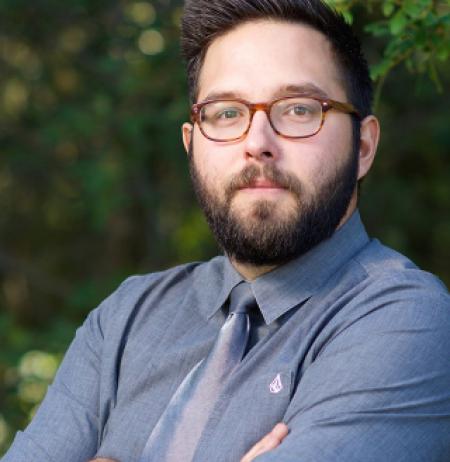
What makes you passionate about planning?
Planning requires tools that enable us to prepare for possible futures, while accepting that such futures are never perfectly knowable. Beyond this, good planning enables communities to work collectively to envision a future that is resilient, inclusive, and prosperous. Most excitingly, with such a vision in mind, planning compels us to act to transform ourselves in support of this vision. While not all visions of the future will or can be realized, the task of looking forward in a collective fashion is fundamental to addressing overlapping social and ecological crises like climate change and inequality. Planners are especially well positioned to lead this work.
Tell us about a project you are working on and why it excites you.
Along with several great collaborators at UNBC (Dr. Tara-Lynne Clapp) and UBC (Dr. Ben Bryce), I am working on the ‘Planning the Great Acceleration’ project. This project examines planning histories and situates the social, political and development trajectories of northern cities as contributors to the conditions of the Anthropocene. In many cities across Canada’s provincial north, present day challenges related to financial sustainability, urban resilience, and community health became path dependant during the decades following WWII; an era often described as the Great Acceleration. During this era, local decision-making and cultures around planning and development were shaped by broader agendas and unchallenged assumptions about growth and endless resource abundance. Although these unchallenged assumptions persist in many ways, I am most excited that the project will better situate present day tensions in planning as part of a broader set of place-based histories that continue to complicate - often in unrecognized ways - efforts to promote good planning.
What do you think the most important challenge will be for planners in the future?
There are many interrelated grand challenges that are rightfully capturing the attention of planners. Among many others, they include decolonizing planning processes and practices, leveraging planning tools to support the transition to a net zero-resilient economy, and rebuilding communities such that a high quality of life is in reach for all Canadians. Rather than any one challenge, I believe the most important work for planners in the future is to reflect upon and where necessary reconstitute the institutions and cultures that they work within to enable meaningfully progress on each of these fronts. It is our responsibility as a profession to come together and support each other in this work.
What are you most excited about at your planning school?
There are so many things to be excited about, but through the ebbs and flows of different projects, initiatives, etc., it always comes back to the students. Since I started in UNBC’s planning program nearly a decade ago, I have had the privileged to teach and learn about planning alongside hundreds of students. I get to be a small part of all these journeys of emerging planning professionals who are going off to engage with critical work across the north (and beyond). This opportunity is undeniably what I find to be the most exciting part of being in the UNBC School of Planning and Sustainability.
Please tell us about a place or plan that has been influential to you.
Northern cities and communities occupy a relatively small slice of the planning discourse in Canada. Because of this, I try to remain attuned to planning processes in northern cities and communities that truly illustrate the transformative potential of our profession. Having grown up in Northwestern Ontario, including several years in Thunder Bay, the planning process that led to the realization of a world class waterfront at Prince Arthur’s Landing has directly influenced me. From the careful work to secure multi-level financing partnerships, to the protection of waterfront views through built form, to the representation of Indigenous design practices in the Spirit Garden, the project illustrates the passion of so many professionals who saw a way to use planning and design to enhance the experience of ‘the city’ for people living in the north.
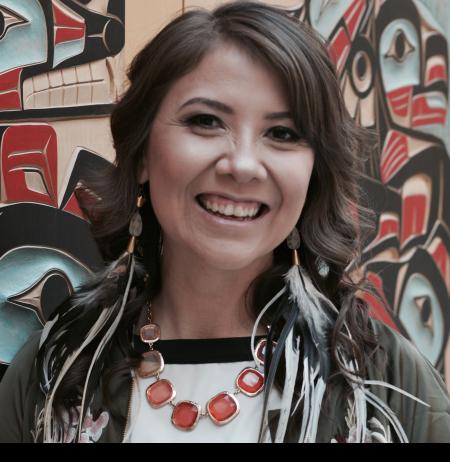
What makes you passionate about planning?
There are a few ways that I approach this question. As an Indigenous Planner, what I am most passionate about is being able to support self-determination for Indigenous Peoples and our Nations throughout the province of British Columbia, across the country and around the world. As Indigenous Peoples, we have been practicing planning processes since time immemorial. These processes are born of culture, relationality, interconnectedness, and the prioritization of future generations in decision-making impacting the land and water. They are processes that are self-governing and unwavering in the face of colonialism and assimilatory policies.
As an aspiring urban Indigenous Planner, it is important for to me recognize how processes of colonization, which includes urbanization, have impacted our ability to embody our cultures and ensure the survivability of our future generations. Settler cities in Canada are founded on dispossession across Indigenous territories to make way for urban growth and development. This dispossession has contributed to the invisibilization of Indigenous Peoples and our cultures from the landscape. What I am most passionate about with regards to urban Indigenous Planning, is to understand how colonization impacts our identities as urban Indigenous Peoples. In this way, I see my responsibility as amplifying self-governing cultural planning process in an urban context. Understanding Indigenous self-governing planning processes in urban contexts also requires me to have a solid foundation in Western planning perspectives; doing so fuels my passion of analyzing how planning has featured in Indigenous dispossession and colonization, including assuming and marking the landscape with particular values and senses of productivity that are often counter to Indigenous knowledge systems.
As an urban Indigenous woman and Planner, I have a role in disrupting processes of colonization so that decisions that have led to incomprehensible injustices towards Indigenous Peoples do not continue. Planning has inscribed certain values on Indigenous territories and these values reflect and have led to systems like residential schooling, child welfare and incarceration, and the continued disappearance and/or murder of our women, girls, and Two Spirit peoples. Our future generations deserve to be seen, heard and respected. Planning in Canada has a unique opportunity to support our ability to thrive on/with our lands – be that rural, urban, provincial, or national planning contexts. Understanding the at times harmful outcomes of planning processes is a first step to realizing this opportunity.
Tell us about a project you are working on and why it excites you.
Currently, I am working on an undergraduate thesis for my last year of my First Nations Planning degree. This thesis doubles as an autobiography and an exploration of the erosion of Indigenous rights in the settler city. This project excites me for many reasons! First, it has enabled me to work with UNBC faculty that I trust and have immense amounts of respect for. This trust is paramount to me as an Indigenous student as it supports me in diving deeply into understanding processes of colonization and how that has shaped my experience as an urban Indigenous woman/person in this country. This journey is extremely personal. It is emotionally, mentally, and spiritually taxing, and feeds the autobiographical telling of my thesis. I asked Dr. Mark Groulx to be my supervisor to ensure my work remains planning-focused, while my committee reader/co-supervisor, Dr. Rheanna Robinson, supports me to ensure I remain grounded in my Indigenous identity while participating in academic processes that have harmed Indigenous Peoples and our communities.
My thesis has many components, making it quite the literary challenge! My research focuses on Indigenous homelessness through secondary source analysis while being grounded in the Gitxaała theory Sagayt K’uulm Go’ot (to be of one heart), and centres around a metaphor of jarred salmon. I am examining events where the cities of Prince George, BC, and Edmonton, AB, sought to deny Indigenous Peoples of our right to be in relationship with the land through the attempted removal of homeless encampments from the cityscape. Throughout these processes of removal, both cities leveraged planning tools such as zoning/bylaws and private property to justify the continued erasure of Indigenous Peoples from the landscape. Indigenous Peoples disproportionately represent our homeless populations in Canada, a reality that is not coincidental and is in fact the result of ongoing systematic decision-making (planning) that has sought to segregate us – both spatially and economically - from predominantly European settlement areas.
Through using autobiographical narrative, I rely on traditional forms of Indigenous storytelling. With this method I aim decolonize academic processes that have evolved from traditions of knowledge generation that are grounded in the belief of our eventual extinction as Indigenous Peoples. By telling my story, in my way, I remind both the academy and field of Planning that we are still here. We belong here. I relate my lived experience of being dislocated from territory, family, and culture to urban Indigeneity, which in turn supports an understanding of Indigenous homelessness as an impact of colonization in Canada. Ultimately, my aim is to contribute to a framework that supports an articulation of our inherent Indigenous rights in an urban/municipal context.
What do you think the most important challenge will be for planners in the future?
I think there are many important challenges facing planners today, for the future. Most pertinent are the issues I’ve raised here. While I recognize that institutes governing Planning in Canada, like PIBC and CIP, are taking steps to address these issues through “Reconciliation” and “Indigenization”, more must be done. Reconciliation is a start, but it is not the blanket solution that many perceive it to be. Reconciliation is a personal journey that should shape our professional journeys and we must recognize it is a never-ending process. Indigenization on the other hand, can give the appearance of being reconciliatory but also runs the risk of being tokenistic and superficial.
Colonization is not just about forcing Indigenous Peoples to learn the English or French language in place of our own languages. Colonization is the subjugation of a group of people by another and deemed to be “inferior” by the dominating group. This perception of inferiority infiltrates many layers of the settler psyche – our languages, our cultures and protocols, our ways of knowing, our ways of being, our ways of learning and teaching, our ways of being in relationship with each other, the land, the water, the stars, animals, spirit-beings and our foods, our laws, our traditions, our governance, our economies of trade, the way we terraform the land, our ways of raising our children, our belief systems, our oral traditions, our medicines, our healing methods, our fluidity in gender and sexuality - all these layers of our identities have been deemed inferior, and have been vilified, by settler society.
Planning processes in Canada are complicit, if not explicit, in the attempted erasure and subjugation of these layers of our identities for the promulgation of colonial ideals and Euro-Christian ideology. Colonial concepts of “proper” use of the land, is only one part of the oppression we experience as Indigenous Peoples because of colonial planning practices in Canada. These processes of colonization are an assault on our intellectual, mental, emotional, and spiritual faculties and our physical bodies. Reading about reconciliation at some point somewhere, or saying you’re working towards reconciliation, is simply not enough. ‘Decolonization’ is better but ultimately, Planning needs to go beyond these concepts (which inherently rely on the recognition of the colonial state to be realized) and step aside to create spaces that amplify those processes already occurring that are born of our (Indigenous) cultures, relationality, and interconnectedness, and prioritize our future generations in decision-making impacting the land and water. In doing so, the field of Planning not only furthers the self-determination of Indigenous Peoples, but we tap into knowledges that have sustained the survivability of our Nations and cultures for thousands upon thousands of years. These knowledges and perspectives become necessary as humanity learns how to respond to the climate crisis all living beings are facing on this planet.
What are you most excited about at your planning school?
Our planning school has been through many changes over the years. I feel like it is a very different school from when I first started in 2016. What I am most excited about is to see what I observe as a generational shift in understanding how our behaviour and actions impact the people and world around us. I feel a lot of the planning students I work with are people-centred in their approach, understand the importance of self-care, and feel it is their responsibility as future planners to ensure the spaces we create are just, equitable, reflective of everyone and critical of systems of power. I believe these planning students are naturally these types of people, but I also believe they have furthered their understanding of themselves through the School of Planning and Sustainability at UNBC, just as I have. Being a mature-aged student, on the cusp of Generation X and Millennials (X-ennials, I believe we’re called!), surrounded by a future generation of young Planners keeps me vibrant and excited to enter a world where the ideals of the Millennial and Generation Z generations will be charged with decision-making that will impact all our lives.
Please tell us about a place or plan that has been influential to you.
There are probably too many places for me to list that have been influential to me! However, for the purpose of this profile, the plans that have been most influential to me may not be considered “plans” in the eyes of most planners. They include: the 1996 Royal Commission on Aboriginal Peoples, which provides a comprehensive overview of Indigenous and settler relations over time in Canada; the 2015 Truth and Reconciliation Commission Reports, which shine a light on the atrocities of residential schools in Canada; and the 2019 Final Report on Missing and Murdered Indigenous Women and Girls, which highlights the systemic nature of gender-based violence towards Indigenous women, girls, and Two-Spirit peoples in Canada. All these reports contain findings and recommendations that, as Planners, can guide us on our journey towards ensuring the power imbalance we benefit from can be tipped in the rightful direction of Indigenous sovereignty*.
What has been most influential to me in understanding myself as an Indigenous Planner is Nishnaabeg author, Leanne Betasamosake Simpson’s, 2017 book entitled As We Have Always Done. This book has been a lighthouse for me in terms of understanding how to approach Indigenous Nation-building grounded in radical resistance and resurgence. She offers compelling wisdom around centring Two Spirit perspectives in Nation-building and provides a foundation with which I can understand how to support land-based learning and practices that contribute to the flourishing of Indigenous cultures. In learning how to be in relationship with people and their cultural practices, I can support Nations in documenting planning processes that are grounded in Indigenous resurgence and support self-determination.
* I note that the PIBC Planning Practice & Reconciliation Committee highlight that they are working towards implementing some of the recommendations from the TRC and MMIWG Inquiry, but as Planners in the profession it is also up to us as individuals to learn more about the history of the country we live and work in and the impact this has had (and continues to have) on Indigenous Peoples

What makes you passionate about planning?
I am passionate about planning because we as planners have the potential to make significant, meaningful, and lasting contributions within our communities.
As planners we are afforded a front row seat to the elected officials “approved/denied” world of development. In my opinion, this outcome-based assessment of planning processes only rewards projects that receive political approval. When was the last time a planning award was given to a project that failed or that did not receive approval? Some of the greatest and most important lessons that I have learned in my 32 years as a planner have been from projects that were not successful.
As an experienced planner I would suggest that our profession, and we as individual planners, need to stand up and be taller, speak up louder, have a bigger voice, and truly lead the planning and development conversation in our communities.
I believe that planners can have a far greater influence in their communities. Participating in the process of planning is far different than defining and creating an innovative, inclusive, and professional culture of planning in our communities.
Tell us about a project you are working on and why it excites you.
I am currently the CEO for the UNBC Land Development Corporation. This is a 50-acre Master Planned development project immediately adjacent to the main UNBC Campus. This project is an incredible opportunity for UNBC to create a meaningful and relevant sense of place where the natural and built environment enhance and complement one another. This project is founded on the acknowledgement of First Nations people of Northern British Columbia, and it recognizes the importance and need to develop a people-first community that continues the tradition of design excellence that already exists at UNBC.
This project is a generational opportunity for UNBC. It will allow the university to grow and expand its research and advancement endowment while at the same time creating a vibrant new community that will also help attract students and recruit staff and faculty.
What do you think the most important challenge will be for planners in the future?
Planners in the future will be asked to rewrite the way in which planning and development are both thought of and managed in an era defined by a significantly diminished and serviced land base. Zoning bylaws, as an example, will still be an effective implementation tool in the world of planning but the form and content of zones will need to envision multiple housing options, innovative and adaptable density models. Controlling development with very prescriptive planning and strict regulations will need to be measured against the need to unlock new housing options for an entire generation of people who have been or will be priced out of the housing market.
What are you most excited about at your planning school?
UNBC’s planning school has always attracted independent thinking students who are able to look at planning from multiple perspectives. The students challenge themselves academically and support their peers in all their educational pursuits.
UNBC’s School of Planning and Sustainability has a passionate and experienced Chair and the faculty are committed to the students, the program, the university and the communities of Northern BC.
The Professional Planners in Northern BC fully support the UNBC Planning Program and offer their expertise and voice when needed. Many local governments, First Nations, and other entities support the students with paid summer internships and job opportunities, and UNBC graduates have no trouble finding employment
Please tell us about a place or plan that has been influential to you.
In 1991 I had the opportunity to be involved at the very beginning with the Six Mile Ranch development west of Kamloops. This ambitious project envisioned being the home to 5000 people and included a national class equestrian centre along with a golf course. Tobiano Golf Course (Canada’s Best Golf Course for the past two years) is now the centrepiece of this development.
This development was complex, political and extremely controversial. Upon reflection it highlighted the fundamental, emotional and overtly passionate debate over highest and best use of one of British Columbia’s most amazing properties.
As I reflect back on this process it reminds me that planning can become and has a tendency to be more about the rules, processes and politics than about the fundamental commitment to improve, enhance and grow healthy communities and people.
Tobiano is a successful and stunning development. This project taught me early in my career that it is okay to have a professional opinion (for or against) of a development that is controversial, political and emotional and that it is ok and appropriate to state that opinion.
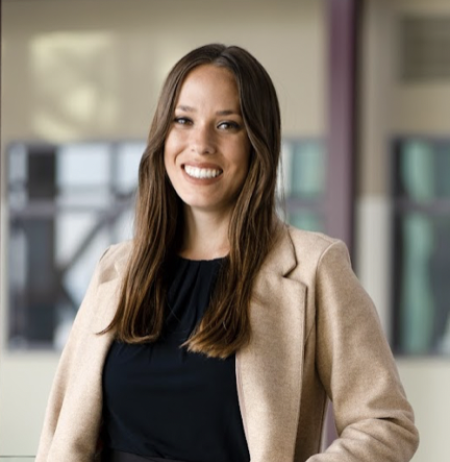
What makes you passionate about planning?
Planning is a medium that allows me to explore my interests in helping people through use of design, thoughtfulness, and responsible planning principles. My experience in wildfire operations and victim services provided me an understanding of how quickly our world is changing and how these changes are impacting people. Planning can provide tools to improve community development, which has the potential to address social injustices like the opioid crisis, suicide, and other trauma related symptoms. Planning can also address environmental and economic justice. I am so thrilled to have found a multifaceted career that focuses on the health and wellbeing of people and places.
Tell us about a project you are working on and why it excites you.
This summer, I will be joining the ‘Nature For All’ team as a research assistant working under the supervision of Dr. Mark Groulx, RPP MCIP (Associate Professor, School of Planning and Sustainability) and in partnership with Spinal Cord Injury BC. The project seeks to improve inclusivity and accessibility for people who use wheelchairs within nature-based recreation spaces. I am looking forward to developing my perspective regarding universal design principles and accessibility policy. I am hoping to gain a richer sense of barriers that people who use wheelchairs face in participation. I am eager to contribute to a project that explores opportunities to improve participation in nature’s benefits in an equitable way. I am excited to meet the team and broaden my perspective through this opportunity of connection.
What do you think the most important challenge will be for planners in the future?
There are so many challenges facing planners today, it is difficult to choose only one. Improving participatory planning principles will be an important challenge to address moving forward. As participatory planning is quite new in the scheme of time, there are always methods to be improved in the process. This style of planning will allow planners to amplify marginalized voices and see their perspectives put into actionable policy. I believe that we cannot achieve environmental justice without improving justice within the social sphere. I recognize they are all interconnected, however, I believe that empowering marginalized groups that are being harmed by past development decisions will be the most important. Providing voice to people who have been impacted largely by singular colonial voices and influences within colonial structures, will be the first challenge to addressing climate change impacts. There can be no healthy environment, without healthy and happy people and vice versa.
What are you most excited about at your planning school?
UNBC’s School of Planning and Sustainability are always looking for ways to improve our learning experiences. After returning to in-person classes, I am excited to finally feel like I am part of a community. This year, I have formed many friendships and connections throughout the program. I am looking forward to being part of the Student Planner’s Association to help connect students to each other and opportunities in their professional development.
Please tell us about a place or plan that has been influential to you.
I grew up in the suburbs of Prince George, BC. Huge shout out to Clarence Perry and Ebenezer Howard for being so influential in the monotony that drove my desire to immerse myself in culture anywhere else. I took a (5) gap year travelling the world. Each of my adventures and experiences in different cities around the world led me to the path of planning. I eagerly sought to learn about different lifestyles, cultures, architecture, cities with art and colour, local food systems and so much more. This longing was all born in my small, suburban neighbourhood. I am so grateful for the experiences that have challenged my world view and continue to influence my life and professional development.
